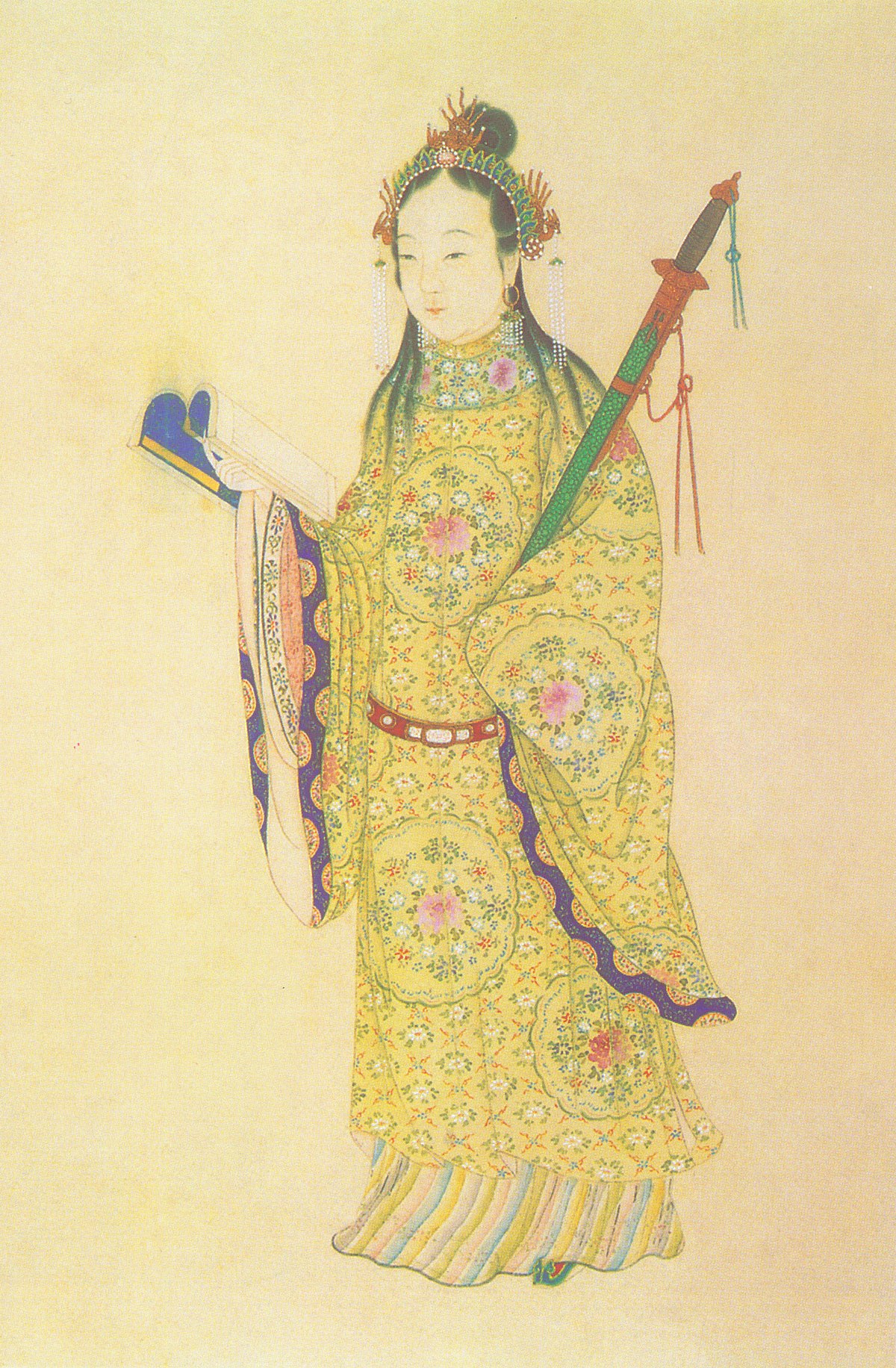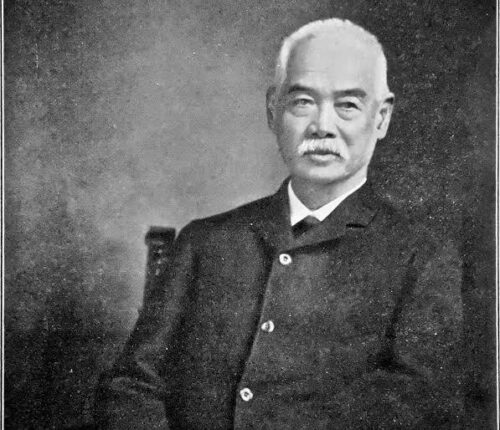This Week in China’s History: July 1648
In the middle of the 17th century, the Ming dynasty faced turmoil all around. Amid internal problems — economic, political, natural — military threats pushed the dynasty to the brink. Manchus menaced the northeastern frontier, moving in on the capital. Thousands of soldiers fell on both sides; the passes through the Great Wall were vulnerable.
Desperate, the Ming called on one of its most decorated generals to protect the capital, noteworthy not only because of decades of victories and strategic successes, but also because Qín Liángyù 秦良玉 — who passed away on this week in 1648 — was a woman.
It was 1630 when Qin was called on to fight off the Manchus approaching the First Pass Under Heaven, the Great Wall’s eastern stronghold in Hebei province. Leading her troops from Sichuan, which was thousands of miles away, she came to the aid of her brothers, who had been fighting in Manchuria for months, and managed to defeat the invaders. She earned the gratitude of the emperor in Beijing, who greeted her with an audience and personally composed four poems for her, praising her bravery, loyalty, and skill.
Like most militaries, the armies of China have been mostly male. Stories of women fighting, often using secrecy and subterfuge to disguise their sex, have become legend. But whereas Huā Mùlán 花木兰, the woman who took her father’s place and served in the army of the Northern Wei dynasty in the 4th century, is immortalized (with some liberties) by Disney, Qin Liangyu remains obscure, other than a few appearances in TV series and video games in China, plus a commemorative statue in her hometown. There’s no reason for this to be so.
Qin Liangyu was born in 1574 in what is today Chongqing municipality in Sichuan. The daughter of a local official, she received, unusually for a girl, the same military and literary education as her brothers, excelling not only in archery and equestrian, but poetry as well. All three Qin children — Liangyu and her two brothers — were deeply steeped in a sense of loyalty to the emperor and to the dynasty.
At the age of 24, she married into even deeper local roots, to a family of the Miao minority that had been ennobled by the Song emperor in the 12th century and retained an inherited rank and a military commission. Qing and her husband, Mǎ Qiānchéng 马千乘, fought side by side with their troops, suppressing a revolt in 1599 and establishing themselves as some of the Ming’s most capable military leaders.
In 1615, Ma was arrested for treason on a charge arising from court intrigue — historian Barbara Bennett Peterson writes that he had run afoul of an influential eunuch at court. The allegations were spurious, but Ma died in prison before he could be cleared. With the couple’s son too young to serve, Ma’s noble title and inherited rank passed, unusually, to his wife, Qin Liangyu.
The army that Qin and Ma had led was among the dynasty’s most effective. Six years after assuming command, Qin was sent to lead the Sichuan troops against the emerging Manchu threat on the northeastern frontier. The Manchu invasion of Liaodong, in 1620, was where she cemented her reputation as a military leader. After the fall of Shenyang — “Mukden” to the Manchus — one brother was killed and the other wounded before Qin Liangyu arrived with her army and was able to push the Manchus back. In subsequent campaigns, Qin Liangyu and her army were called on to defend Beijing itself from Manchu invaders. After the immediate threat had passed, a detachment of her troops stayed behind to strengthen the capital’s defenses. That unit was jointly commanded by both Qin Liangyu’s son and her daughter-in-law, carrying on the gender-challenging tradition. (The legacy of their encampment remains in the name of the Sichuanying neighborhood in Beijing.)
Qin Liangyu spent her last years defending the Ming against the rebels that cropped up as the dynasty stumbled. Ultimately, the rebel armies of Zhāng Xiànzhōng 张献忠 defeated her troops as their rebellion, combined with the armies of Lǐ Zìchéng’s 李自成, brought the Ming down before they themselves were overwhelmed by the Manchus, who established the Qing dynasty.
When Qin Liangyu died, in the summer of 1648, the nascent Qing was rooting itself across China. Besides the military challenges they faced, the question of legitimacy was paramount to the Manchus’ ability to rule. Qin Liangyu illustrated the notion of Ming loyalism, defending the dynasty into her 70s with all the tools at her disposal.
Loyalty to the Ming was complex, and the specifics of why individuals remained loyal to the Ming varied. We don’t know what might have motivated Qin Liangyu specifically, but it’s worth considering the kinds of deliberations that she — and tens of thousands like her —might have had before deciding how to act.
The idea of service was deeply valued. Certainly the idea of remaining true to the ideals of one’s office or position, even once the circumstances of it had changed dramatically, played a role. More specifically, many Ming loyalists felt a commitment to individual members of the royal family (or to those who resisted on their behalf). Qin Liangyu had received a personal audience with the last emperor, not long before the dynasty’s fall, so this applied to her. Family of course is a powerful motivator, not just to the Ming royal family but to one’s own family, especially one that had served in the past. Qin’s father was a Ming official, and her husband’s family had been in government service for a millennium. Fighting to protect the dynasty was fighting to protect her family’s legacy. Even though the Ma family’s commission had not come from the Ming, she may have felt connected to the (often specious but nonetheless powerful) notion of the dynastic tradition and a loyalty to Chinese culture and political ritual. Fighting against the Manchus — a non-Chinese enemy that sought to supplant a Chinese regime — would have served this role as well.
Today, living in a world of resurgent nationalism, it is easy to assign darker motives to loyalty to a nation. Patriotism and xenophobia are not far removed from one another. “Chinese nationalists” are often dismissed as an unthinking, undifferentiated mob, serving the party without thought or perspective. That may or may not be, but is it so different than the motivations of other nationalists?
Whatever her motivations, Qin Liangyu is a compelling and unusual case. As Disney digs ever deeper for content, will she finally get her star turn?
This Week in China’s History is a weekly column.







